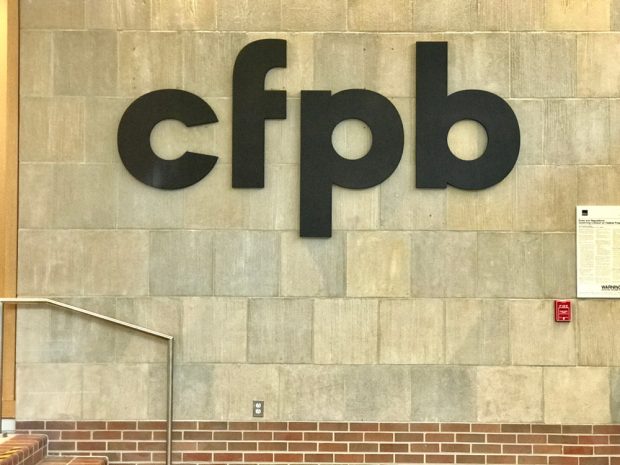 CFPB headquarters. (Source: Shutterstock)
CFPB headquarters. (Source: Shutterstock)
I usually find myself somewhat critical of the Dodd-Frank Act but I have to admit it really has shown its worth during the latest banking crisis.
For example, the "living wills" intended to create a game plan for the orderly bankruptcy of the nation's largest banks really came in handy in preventing a frantic search for buyers of Silicon Valley Bank et al. Otherwise, we may have had to have regulators guaranteeing deposits and businesses rushing to put funds in even larger banks.
Recommended For You
And it sure is a good thing we nationalized mortgage lending standards to ensure that reckless real estate lending could never again contribute to a banking crisis. Otherwise, First Republic Bank might have specialized in making long-term mortgage loans to the wealthy, contributing to a recklessly illiquid portfolio that exacerbated the crisis.
At least it increased collateral requirements, albeit ones that were watered down for community banks like the ones that failed. Then again, does anyone really believe that increased collateral requirements would have prevented banks from loading up their accounts with uninsured deposits? Barney Frank doesn't. By the way, does anyone see the irony of a named sponsor of banking reform being on the board of one of the most significant bank failures since his legislation passed?
Well, at least Congress took a close look at the changes made under Gramm-Leach-Bliley, which tore down the remaining distinctions between commercial and investment banks. Otherwise, a relatively small community bank in Silicon Valley might think it's a good business strategy to specialize in opening accounts for companies wanting to access computer-generated make-believe money, which is more unstable than most securities.
To be fair, at least the bankruptcy of Fannie and Freddie gave government the opportunity to reevaluate the need for two quasi-private entities that do essentially the same thing and which certainly played a role, albeit a somewhat understated one, in the 2008 financial crisis. If only that were true. They are both alive and well, and the FHFA under the Biden administration is aggressively using the GSEs to pursue its housing agenda.
Well, wait a second, if the Dodd-Frank Act didn't curtail large banks from getting larger; the Main Street economy from blending ever more closely with Wall Street; and didn't do anything to prevent bank runs, then what did it accomplish?
Unfortunately, any reader of this column knows the answer. It imposed a national framework of consumer protection oversight which has, to be fair, added protections for consumers and demystified the home-buying process but has done so by creating a huge industry of consumer protection litigation and increased compliance costs, which have contributed to driving more and more of the small guys out of business.
In fact, the more I think about it, I think that consumer advocates pulled off some of the greatest legislative trickery ever. They used a banking crisis, which had nothing to do with consumer protection, and successfully fought for the creation of a bureau that has an independent source of funding and wide latitude to interpret laws the way it feels it should be interpreted.
History won't be a kind judge.
In 1907, JP Morgan single handedly acted as a Federal Reserve Bank to stop a bank run. What followed was a series of major banking reforms creating the Federal Reserve Banking System, imposing true firewalls between investment and commercial lending, introducing deposit insurance and creating credit unions. Fast forward 100 years, and starting in the mid-90s, we have now passed a series of laws doing away with all those reforms but placating the reform minded by creating the CFPB. The result was that Jaime Dimon played very much the same role as JP Morgan. But now, we have few meaningful institutions to prevent similar disruptions in the future. In fact, the safest thing for the American consumer to do is to put more and more of their money into the largest banks. At least they can afford to comply with the CFPB's mandates.
 Henry Meier, Esq.
Henry Meier, Esq. Henry Meier is the former General Counsel of the New York Credit Union Association, where he authored the popular New York State of Mind blog. He now provides legal advice to credit unions on a broad range of legal, regulatory and legislative issues. He can be reached at (518) 223-5126 or via email at [email protected].
© Touchpoint Markets, All Rights Reserved. Request academic re-use from www.copyright.com. All other uses, submit a request to [email protected]. For more inforrmation visit Asset & Logo Licensing.






